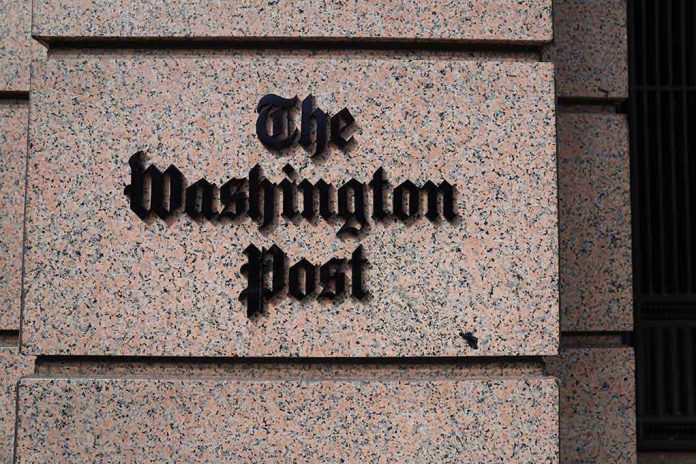
An incident involving political bias in media coverage during a national crisis calls for a reexamination of our values and priorities.
Key Takeaways
- Criticism of the Washington Post erupts for prioritizing anti-Trump articles over a major aviation disaster.
- A collision between a military helicopter and a commercial plane resulted in no survivors.
- The Washington Post featured the crash news in a less visible position on their front page.
- The focus should be on prioritizing crisis news over political bias in media coverage.
Media Priorities Under Fire
The Washington Post came under criticism for its handling of a major aviation disaster in the capital. A mid-air collision between a military helicopter and a commercial jet near Ronald Reagan National Airport resulted in no expected survivors, deemed the deadliest crash since February 2009. The event led to public outrage as the Washington Post prioritized anti-Trump articles on its front page, relegating the disaster coverage to a less prominent position.
Critics argue that such editorial decisions reflect deeply entrenched political biases that overshadow pressing national tragedies. Sister Toldjah, a North Carolina-based writer, highlights this issue, suggesting media outlets have failed to learn from previous criticisms about coverage priorities. The need for clear and balanced reporting is crucial in fostering a united front during emergencies.
Aviation Disaster: A Call for Unity
The mid-air collision near Reagan Airport brought the nation’s attention to priorities during emergencies. As the site of a national tragedy, it was expected that media outlets would focus on the incident. Instead, the Washington Post faced backlash for focusing instead on political narratives. Sister Toldjah argues that the crash deserved to be the leading story, given its devastating impact.
The editorial choices point to a broader need for compassion and empathy in crisis reporting. This incident reveals the importance of coming together beyond political differences to support healing and recovery in times of sadness and loss. The media’s role in guiding public sentiment should reflect the urgent realities faced by all citizens.
Lessons in Solidarity
In moments of national crisis, focus should lean towards collective identity that transcends political factions. Events of tragic nature, like the aviation disaster, require the media to rise above ideological persuasions. The Washington Post’s decision not to adjust its front page layout to accommodate the breaking news leads to questions about media bias and societal values.
The plea for solidarity over division becomes evident as individuals across the political spectrum reflect on how best to address such impactful events. Learning from past editorial missteps is crucial in building a society that prioritizes collective healing and understanding in the face of loss.


